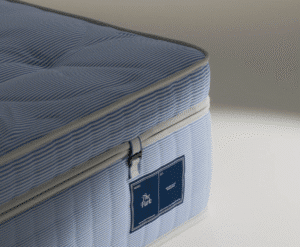How to Sleep: 7 Methods that Guarantee Results
In today’s fast-paced world, knowing how to sleep soundly has become a common concern. Inadequate sleep can affect your health and daily functioning, making it crucial to find effective strategies for rest. Here are seven powerful methods guaranteed to help you achieve a rejuvenating night’s sleep.
1. Try Relaxation Techniques
When insomnia strikes, your mind can race with anxiety and stress. One effective method to calm your busy thoughts is through visualization. Picture a serene landscape—perhaps a quiet beach where you feel the gentle breeze against your skin or a tranquil forest filled with the sounds of chirping birds. Engaging your imagination can effectively shift your focus away from your worries and help you unwind.
If visualization doesn’t do the trick, consider incorporating relaxation techniques like deep breathing exercises. Focus on your breath, taking slow, deliberate inhales and exhales. Adding practices like progressive muscle relaxation can also relieve physical tension; tense and then relax each muscle group from your toes to your head.
Additionally, exploring meditation or journaling before bed can help clear your mind. Meditation encourages mindfulness, while journaling allows you to express thoughts that may be contributing to sleeplessness. Cognitive Behavioral Therapy for Insomnia (CBT-I) is another method worth exploring, targeting the negative thoughts and behaviors that disrupt sleep.
2. Adjust Your Environment
Creating a sleep-friendly environment is essential for quality rest. Invest in a comfortable mattress and pillows that support your sleep style. Keep your bedroom cool—around 65°F (18°C) is typically optimal. Control light and noise with blackout curtains and white noise machines.
To limit distractions, hide the clock if its ticking makes you anxious about time slipping away. A cozy, well-adjusted environment can greatly enhance your ability to drift into restful sleep.
3. Avoid Stimulants
To promote a restful night, steering clear of stimulants is crucial. Limit caffeine intake in the afternoon; its effects can linger for hours, making it difficult to fall asleep. While alcohol may initially make you feel drowsy, it disrupts the quality of sleep, often causing awakenings during the night. Heavy meals close to bedtime can lead to discomfort, so opt for light snacks if you’re feeling hungry.
Moreover, if you’re a smoker, reducing nicotine consumption in the hours before bed can also promote better sleep.
4. Establish a Consistent Sleep Schedule
Creating and sticking to a regular sleep schedule is one of the most effective strategies for improving your sleep quality. Here’s how to get started:
Bedtime Routine
Build a relaxing bedtime routine that signals your body it’s time to prepare for sleep. Consider activities like taking a warm bath, reading a book, or listening to soothing music. According to research published in Sleep Medicine Reviews, taking a warm bath or shower before bed can significantly improve how quickly you fall asleep and enhance sleep quality.
Wake-Up Time
Consistency is key. Wake up at the same time every day, including weekends. This practice helps regulate your internal clock, making it easier to both fall asleep and wake up naturally.
Limit Naps
While a quick nap can be refreshing, avoid lengthy naps late in the day as they may interfere with nighttime sleep. If you feel the need for a nap, try limiting it to 20-30 minutes.
5. Practice Good Sleep Hygiene
Good sleep hygiene significantly influences your ability to achieve restorative sleep. Here are some straightforward yet effective tips:
– Limit Screen Time: The blue light emitted by phones, tablets, and computers can hinder melatonin production. Try to avoid electronic devices at least an hour before bed.
– Dim the Lights: As bedtime approaches, lower household lighting to help signal to your brain that it’s time to wind down.
– Engage in Relaxing Activities: Incorporate low-stress nighttime activities into your routine, whether that’s gentle yoga, reading, or meditative practices.
By establishing good sleep hygiene, you’ll create a favorable environment that promotes restful sleep.
6. Use Visualization and Breathing Techniques
When anxiety clouds your mind at bedtime, visualization and breathing techniques can help calm your system. Here’s how to implement these methods:
Visualization
1. Get Comfortable: Lie down and close your eyes.
2. Practice Controlled Breathing: Take deep, slow breaths to promote relaxation.
3. Imagine a Peaceful Scene: Picture a calming place—perhaps somewhere tropical or a quiet mountain retreat. Engage all your senses to enhance the experience.
Deep Breathing Exercises
One effective breathing method is the 4-7-8 Technique. Here’s how to do it:
1. Inhale for 4 Seconds
2. Hold for 7 Seconds
3. Exhale for 8 Seconds
Repeat this cycle four times. This technique can help reduce anxiety and promote relaxation.
7. When to Seek Professional Help
If you’ve tried various methods and still find yourself struggling, consider consulting a sleep specialist. Chronic sleep issues can significantly affect your overall health and well-being.
Common sleep disorders include:
– Insomnia: Difficulty falling or staying asleep.
– Sleep Apnea: Breathing interruptions during sleep.
– Restless Legs Syndrome (RLS): Uncomfortable sensations in the legs.
A sleep specialist can conduct a thorough evaluation and recommend appropriate treatment options tailored to your situation.
Conclusion
Struggling with sleep can feel overwhelming, but various proven strategies can help you reclaim restful nights. Prioritize effective techniques tailored to your lifestyle, and remember that seeking professional help is a valuable option if needed.
At Yawnder, we understand the importance of quality sleep and offer solutions designed to address your unique challenges. With the right strategies and support, achieving better sleep is within reach. Explore our services and start your journey to restful nights today.


















